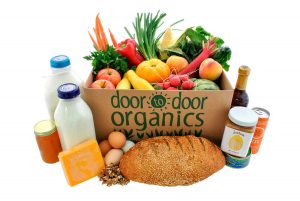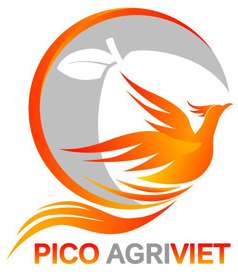Pico Agriviet Company
HOW INFLATION IS ACCELERATING THE FALL IN ORGANIC SALES IN FRANCE
Pico Agriviet
![]()
Faced with inflation, the French are giving up organic products, whose sales have been falling for months. Even if it means referring to other “sustainable” products.
Organic is no longer a recipe. After years of euphoria, sales of organic products have been steadily declining since 2021. So much so that the National Federation of Organic Agriculture called on Thursday for “general mobilization” to save the sector and urged the government to “act urgently so as not to watch with folded arms the burial of France’s agro-ecological transition”.
If producers are so worried, it is because the crisis in the organic market has worsened with inflation, which should represent an average additional cost of 990 euros per household in 2023, compared to 2021, according to NielsenIQ. In this context, the French carry out arbitrations. According to the panelist, they certainly do their shopping more often (+6.7 purchase acts per household on average), but put fewer items in the shopping cart (-0.9 items purchased per act).
And it is organic products that bear the brunt of this, with sales down 8.6% in specialized stores and 4.6% in mass distribution in 2022, according to figures from the Agence bio. A finding shared by Nielsen who observes a continued decline in organic since the beginning of the year. According to the panelist, out of 100 checkouts in March, 23 contained at least one organic item (3.9% of volumes), compared to 25 in 2022 (4.3%) and 26 in 2021 (4.4%).
Most departments affected by the decline of organic
To illustrate this trend, Nielsen looked at two emblematic organic products. Organic milk first, which represented 12.6% of milk sales in supermarkets in the first quarter of 2023, compared to 14% a year earlier and 14.8% two years earlier. Then organic eggs, whose weight in total egg sales has fallen from 27.2% at the start of 2021, to 24.4% today.
Apart from the drive (+11%) and hard discount brands (+4.2%), all the other distribution channels saw organic sales collapse between March 2020 and March 2023: -15.6% in volume in hypermarkets, -10% in supermarkets, -5.3% in convenience stores… Most departments are affected, with the exception of salty (+15.6%) and sweet (+14.3%) frozen foods. ) and the beauty hygiene department (+55%) where organic remains a buoyant label. The fresh non-dairy (-27.3%), fresh-dairy (-24.7%) and non-alcoholic liquids (-9.4%) sections, on the other hand, posted the strongest declines.
The return of inflation has obviously not served the organic market. Especially since the French cite “affordable prices” (18.1%) as the main reason that encourages them to choose a brand , ahead of “safety and hygiene guarantees” (13.1%) and “options healthier” (13%). The criterion “environmentally friendly/sustainable” (11.2%) only comes in fourth place, tied with “trusted or familiar brand” (11.2%).

Some “alternative” products are doing well
Not to mention that, for the French, consuming “sustainably” is not just about organic. Many of them say they are sensitive to the claims “sustainable packaging” , “reduction/zero waste” or even “products with clean energy”. In this context, consumers are abandoning organic for other so-called “alternative” products which continue to perform despite inflation: +24.9% over one year for “pesticide-free”, +17.6% for ” outdoors”, +13.8% for “preservative-free”, +12.8% for “responsible label” products, +9.1% for “gluten-free”, +7.1% for “without Palm oil”…
These “sustainable” products are generally more affordable than organic products. For example, the average price of a box of 6 organic eggs is 2.78 euros, according to Nielsen statements, against 2.33 euros for “red label” eggs, 1.90 euros for eggs “open air” and 1.62 euros for eggs from hens raised “on the ground”. Similarly, the average price per kilo of canned organic green beans is 4.62 euros, much more than the “pesticide-free” version (2.51 euros) or the conventional version (1.86 euros).
More than half (54%) of consumers surveyed by Nielsen in July 2022 also considered that organic products are too expensive compared to the benefits they bring. They were also more than a third (36%) not convinced of the health benefits of the products.
Source: https://www.bfmtv.com/economie/consommation/comment-l-inflation-accelere-la-chute-des-ventes-de-bio-en-france_AV-202306040107.html
# VIETNAM FRUIT EXPORTER
# VIETNAM FRUIT SUPPLIER
# FRUIT COMPANY VIETNAM

